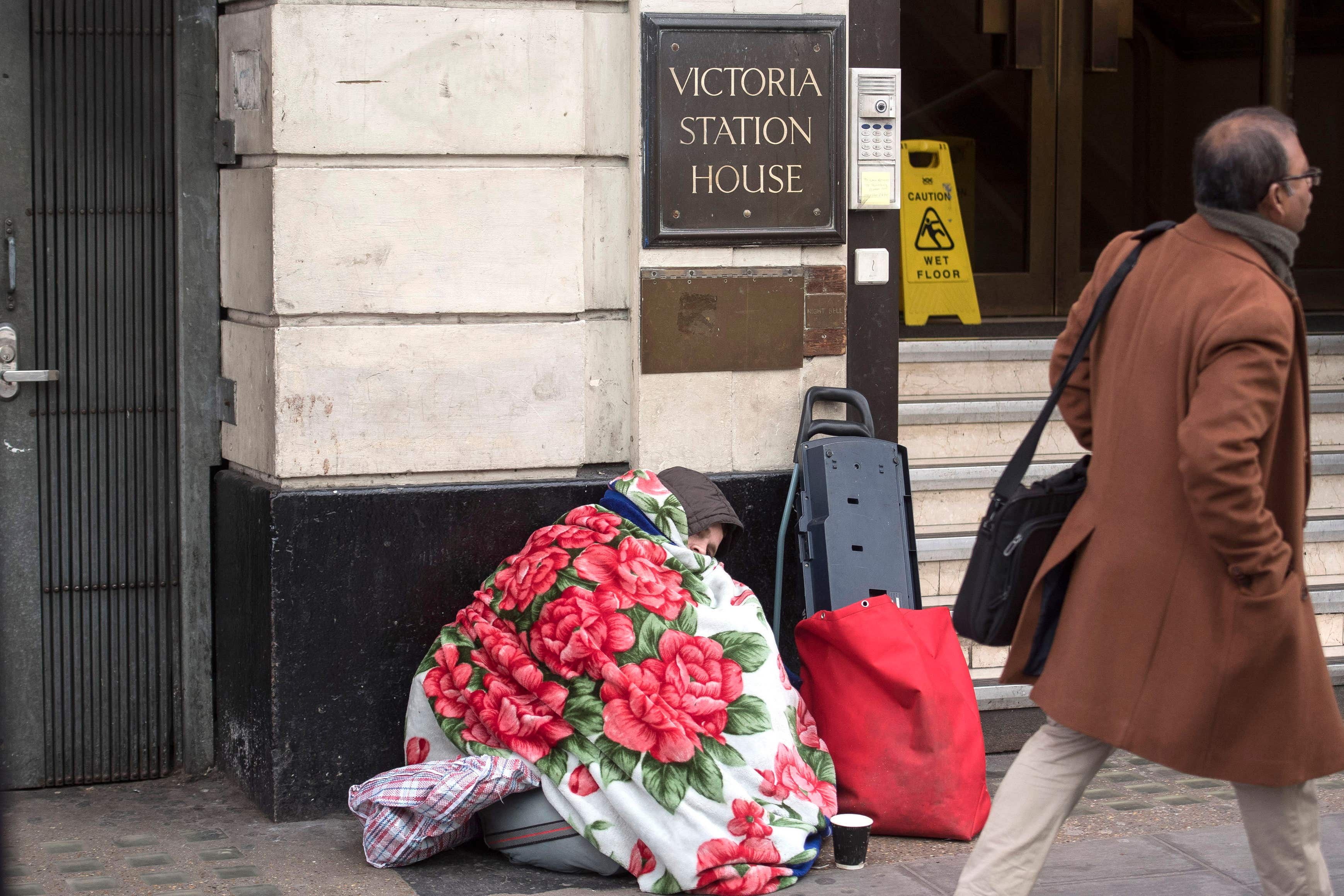Rise in rough sleeping in London ‘shows full impact of cost-of-living crisis’
Of the latest total for the beginning of 2023, almost half – 1,490 people – were sleeping rough for the first time, a report said.

A rise in rough sleeping in London has seen almost half of those on the streets there for the first time, according to new figures a charity said show the full impact of the cost-of-living crisis.
Between January and March a total of 3,107 people were recorded by outreach teams as sleeping rough in the capital – a 14% increase on the same period last year.
The figures are from the latest Combined Homelessness and Information Network (CHAIN) report, which is commissioned and funded by the Greater London Authority (GLA).
We are starting to see the full impact of the cost-of-living crisis, as more and more people become street homeless in London
Of the latest total for the beginning of 2023, almost half – 1,490 people – were sleeping rough for the first time, the report said.
The number of new rough sleepers recorded during this period was 15% higher than the same period last year, it added.
Charities have repeated calls for more Government action to reform the private rental sector, urging publication of the long-awaited Renters’ Reform Bill.
St Mungo’s chief executive Emma Haddad said higher rent and bills are leading to people who never would previously have been at risk of homelessness “now sleeping rough”.
She said: “We are starting to see the full impact of the cost-of-living crisis, as more and more people become street homeless in London.
“Rising rents and bills mean people are losing their accommodation, an ever-increasing number of people are presenting with more complex mental health issues, and people who have never been at risk of homelessness before are now sleeping rough.”
Calling for urgent action, she said: “The Government must increase housing benefit so it properly reflects the true cost of renting, and must introduce the long-promised Renters Reform Bill to prevent more evictions on to the street. Without immediate intervention, the number of people forced to sleep rough will continue to rise.”
Homeless Link, the national membership charity for organisations working directly with people who become homeless in England, said people in the capital are facing “consistent pressures” and being “failed by systems that should protect them”.
The organisation’s director of social change Fiona Colley, said: “This could be a young person who has recently left the care system, a woman fleeing an abusive partner or someone who simply couldn’t keep up with sharply rising rents in the capital.
“Rising costs have not just exacerbated long-term systemic causes of homelessness, such as a shortage of affordable housing and an unfit welfare system, the situation is also threatening homelessness services that are needed now more than ever.
“If the Government is to meet its goal of ending rough sleeping in this parliament, it must grant a funding uplift to ensure services do not have to make cut backs or close their doors altogether, leaving people without vital support.
“At the same time, bringing forward the full list of reforms outlined in the private renting White Paper will give London renters much-needed protection and rights to help prevent more people from becoming homeless.”
The Salvation Army, one of the country’s largest providers of homelessness services, said the funding to end rough sleeping must be prioritised for support services, especially mental health and addiction treatment.
Nathan Slinn, assistant director of homelessness services at the charity, said: “We know the Government has made a serious commitment, backed by considerable funds, to end rough sleeping.
“We also know that there is limited financial resource available to tackle the high demand. That is why we are asking for investment in the support and prevention services that help people break the cycle of homelessness.”
London mayor Sadiq Khan said he has done everything he can to help rough sleepers in the capital. He has “quadrupled our rough sleeping budget and City Hall services have helped a record 13,500 people off the streets”, he said.
But he said “despite this progress, extraordinary financial pressures are putting the poorest Londoners at growing risk of homelessness and we continue to see a revolving door of people ending up homeless as a direct result of this escalating cost-of-living crisis”.
He said: “The Government must also fulfil their manifesto pledge to end no-fault eviction for private renters and invest in new council and genuinely affordable homes to help prevent more Londoners from becoming homeless in the first place.”
In September, the Government published its Ending Rough Sleeping For Good strategy, which restated its manifesto commitment to end rough sleeping by the end of this Parliament.
It has also previously stated its intention to bring forward legislation this year to ban Section 21 no-fault evictions, which currently allow landlords to quickly evict tenants without having to give a reason.
A Government spokesperson said: “Rough sleeping remains well below pre-pandemic levels, but we know there is more to be done to end rough sleeping for good.
“That is why we committed £2 billion to support the three-year cross-government strategy to tackle homelessness and rough sleeping.
“This includes the Rough Sleeping Initiative, which is providing £162 million in funding to councils in London. They have a duty to offer tailored support to vulnerable people, including help to access accommodation, support through Housing First and engagement with mental health and employment services.”
Bookmark popover
Removed from bookmarks